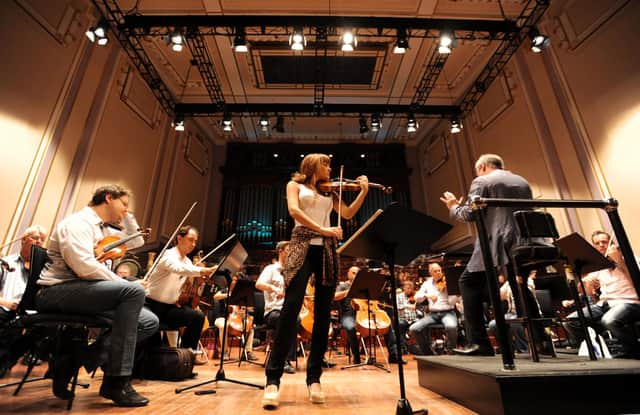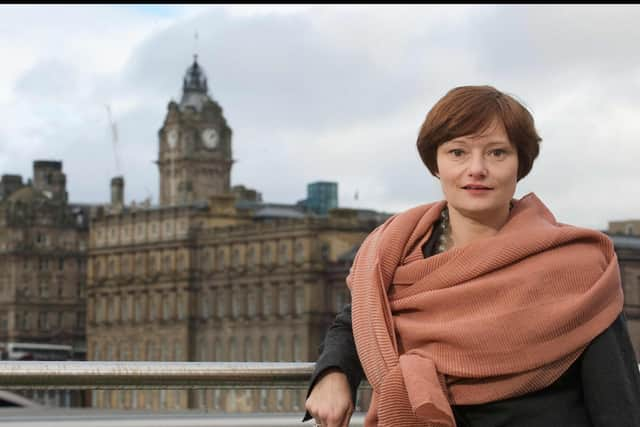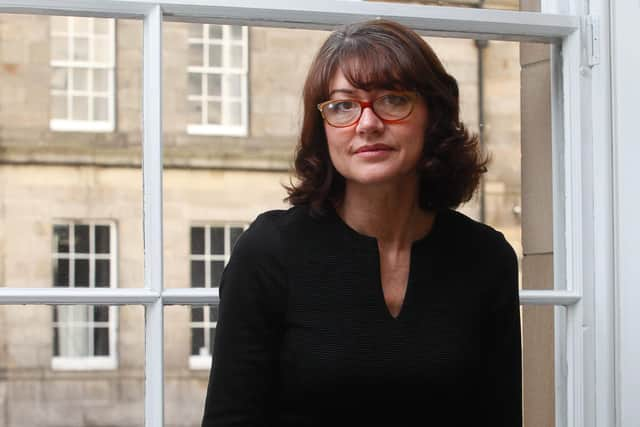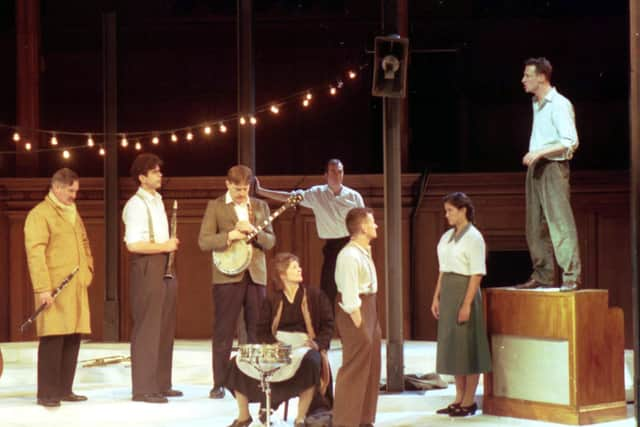How Edinburgh businesses could help the city's recovery by backing culture and the arts


Let us know what you think and join the conversation at the bottom of this article.
And they hope that recognition will pave the way for increased business backing for culture and the arts in the Capital as it seeks to bounce back from the pandemic.
Liz McAreavey, chief executive of Edinburgh Chamber of Commerce, said: "What has been really clear over the last 18 months is the connection between the economy and the festivals. Losing them last summer has had a major impact, not just in terms of visitor numbers but our status as an international city.
Advertisement
Hide AdAdvertisement
Hide Ad"The festivals bring lots of talent, lots of ideas; it's a place where our own domestic talents and artists are developed. I think we underestimate the impact our culture and festivals and live events have on our economy."
She said the online Royal Highland Showcase, which substituted for the normal live show at Ingliston, had been streamed in 89 countries around the globe.
"It goes to show the interest there is in the international brand of Edinburgh," she said.
"And the book festival, whose audience is normally 75 per cent domestic and local, last year reached every country in the world bar two when it was online.


Advertisement
Hide AdAdvertisement
Hide Ad"Digital platforms really opened up Edinburgh and enabled us to maintain that international city status."
Ms McAreavey said Edinburgh's global reputation brought tourists, talent and investment to the city.
"Hopefully as things start to normalise we will see the return of live events and the festivals. It's definitely got to bounce back next year."
Increased business support was one of the moves called for in the manifesto for the city’s recovery from Covid recently published by the Edinburgh Business Review Group, which includes the big banks, major companies and the city's universities and cultural organisations.


Advertisement
Hide AdAdvertisement
Hide AdThe Prospectus for Growth document said: “City businesses need to do more to support our live events, culture and tourism sector. We need to work to engage larger employers in particular in supporting the arts and culture in the city, as they obviously indirectly benefit from the vibrancy of this sector.”
And it had specific ideas – subsidised tickets for staff, funding for outdoor city centre events and small city centre venues being set up in empty shops or unused offices.
Julia Amour, director of Festivals Edinburgh, bringing together the Capital’s 11 festivals, helped compile the manifesto and says it is a welcome confirmation that the festivals are seen as a great social, cultural and economic asset for the city.


“There has always been public and private investment in the festivals – their public grant is about 25 per cent of their overall turnover,” she said.
Advertisement
Hide AdAdvertisement
Hide Ad“There clearly are businesses and individuals who support them, but, especially after the financial crisis of 2008, the balance of corporate support to individual support has really flipped, so it's much more now about individual support and I think we need to get back to a really strategic partnership between the festivals and the businesses and all of the people in the city that benefit from the festivals.”
On whether businesses were reluctant to resume financial backing for culture, she said: “It has obviously been very difficult for many people and businesses over the past decade and it's true the corporate support market has become tougher and as Edinburgh has fewer finance headquarters, for example, decisions are not necessarily being made locally and policies are changing about where that support is going and how much is being put towards that kind of support.”
She said: "We have got some very strong supporters among leading businesses in the city and we hope this could be the start of a conversation about how more people could come together in a strategic way to support the whole of culture, not just the festivals.
"It's the whole of the cultural system in Edinburgh, because the freelancers, the individual creatives that make it up have had an extraordinarily hard time in the Covid crisis.”
Advertisement
Hide AdAdvertisement
Hide AdShe pointed to a proposal in the SNP manifesto at this year’s Holyrood elections to set up a “Percentage for the Arts” scheme, requiring all new public building projects to spend a proportion of the overall budget on community art commissions – one per cent for projects over £5m and 0.5 per cent for smaller ones.
She said: "That's a great example of a project we could get around and maybe create a pool of investors in the city who would be prepared to match that and that would help us as a community of citizens, businesses, cultural organisations to have a longer-term vision and plan for what a good recovery looks like.”
And she also likes what the financial community of the City of London have done, setting up a culture-and-commerce taskforce to promote a deeper relationship between the creative and business sectors and accelerate London’s Covid recovery.
“An approach like that would be really interesting for Edinburgh – to get lots of the people who are critical to the success of the city and influential and bring a lot of jobs and investment to the city around a table talking about how could we do something that would not just rely on that public funding, but would augment it and mean we had something more resilient and sustainable.
Advertisement
Hide AdAdvertisement
Hide Ad"If [companies] want to give back to the city that is their home and they know they need to keep as a beacon for the world and a cradle of creativity what better way to do that than have a long-term approach to supporting culture and festivals?”
A message from the Editor:
Thank you for reading this article. We're more reliant on your support than ever as the shift in consumer habits brought about by coronavirus impacts our advertisers.
If you haven't already, please consider supporting our trusted, fact-checked journalism by taking out a digital subscription.
'
Comment Guidelines
National World encourages reader discussion on our stories. User feedback, insights and back-and-forth exchanges add a rich layer of context to reporting. Please review our Community Guidelines before commenting.
